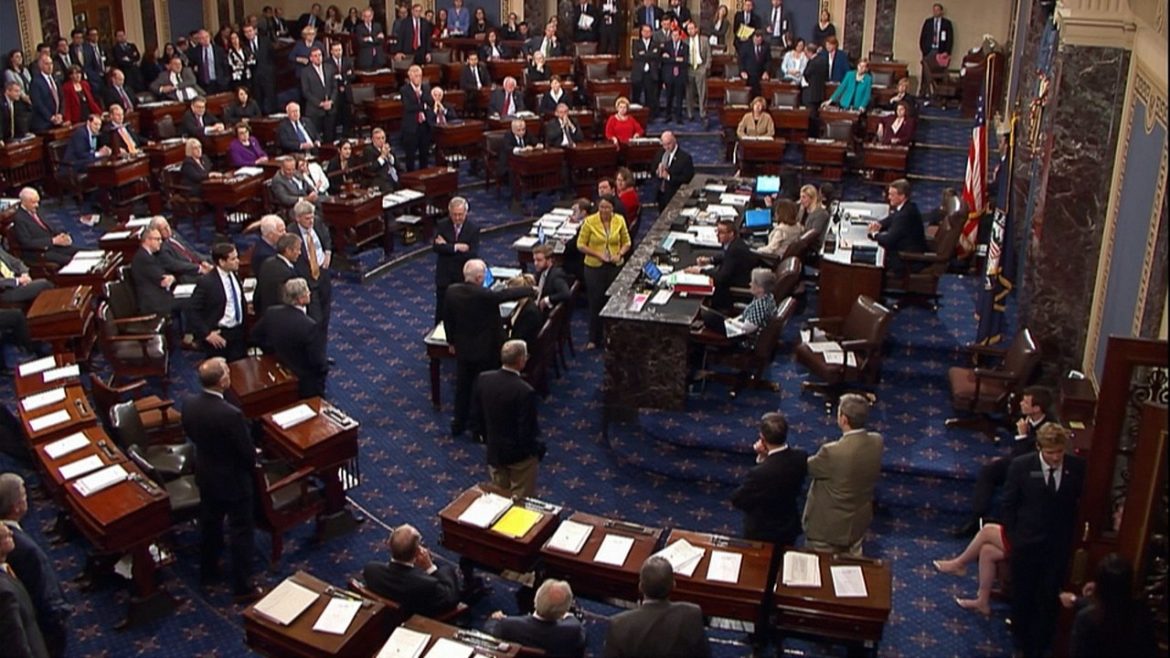WASHINGTON — Key juvenile justice legislation may be on the brink of reauthorization after years of disagreement and inaction in Congress.
The Juvenile Justice and Delinquency Prevention Act (JJDPA) sets the core safety standards for juveniles that states must follow in order to qualify for federal grants. It also aims to prevent delinquency and curb racial and ethnic disparities in juvenile justice systems. The act hasn't been reauthorized since 2002, and advocates have been urging lawmakers to update the law for more than a decade.
The House and Senate each passed their own bills to reauthorize the JJDPA last year, but the two versions needed to be reconciled. On Sept. 28 the House approved a version (HR 6964) that included the Senate’s language. Senate Democrats have agreed to that version, but Senate Republicans are still mulling changes.
“The House is hopeful that [Senate Judiciary] Chairman [Chuck] Grassley does not leave Washington before November without putting that bill on the president’s desk,” a senior House aide said who did not want their name used.

Naomi Smoot
Naomi Smoot, executive director of the Coalition for Juvenile Justice, said, “There are two competing versions in the Senate, which is the problem that we’re in. … We’re optimistic that the bill will be reauthorized … and we’re closer than we have ever been for more than a decade.”
Reauthorization would help increase funding for JJDPA and improve the treatment of youth in the juvenile justice system, largely because experts have more information on adolescent behavior now than they did 16 years ago, she said. The act was first approved in 1974.
VCO exception wins Cotton
The Senate is trying to pass the bill using a fast-track procedure that requires the support of every senator. Senate Republicans can either agree with HR 6964 in its current form or the entire Senate must approve a new set of language, which would then be sent back to the House for approval.

Sen. Tom Cotton
Previous attempts to reauthorize the JJDPA were blocked by Sen. Tom Cotton, R-Ark., who opposed a provision that would limit judges’ authority to lock up some young offenders for so-called status offenses, such as truancy or running away. Earlier versions of the bill sought to phase out a loophole that allowed the detention of juveniles for status offenses that were in violation of a Valid Court Order (VCO).
This time, Cotton convinced Sen. Grassley, R-Iowa, and Sheldon Whitehouse, D-R.I. — the main sponsors of the latest Senate bill — to keep the VCO exception in exchange for his support.
“Senator Cotton’s concerns have been addressed and he enthusiastically supports its reauthorization,” said his communications director, Caroline Tabler, by email.
“We’ve fought for many, many years to try to remove the Valid Court Order exception,” Smoot said. “To see that go was upsetting and disappointing, but getting the bill reauthorized and making sure the program continues is also critically important.”
As of 2014, 26 states and the District of Columbia reported using VCO exceptions. More than 7,000 young people are still incarcerated annually for committing status offenses, as of 2016 figures.
A spokesperson from Sen. Whitehouse’s office said they “remain hopeful” that the reauthorization will pass.
The National Council of Juvenile and Family Court Judges (NCJFCJ) successfully lobbied for the VCO exception in the 1980s, but reversed its position in 2010. The group is now urging lawmakers to work together to pass the bill during this session of Congress.
“Since it was last reauthorized in 2002, members of Congress and local and national stakeholders have dedicated many hours and careful consideration to enhance and add new provisions necessary to improve and update the law,” said Judge John J. Romero Jr., in an emailed statement. He is president of the NCJFCJ.
Among other things, the latest House bill:
- Asks states that receive federal grants to meet "core requirements," including segregation of young detainees from adults and the identification and reduction of racial disparities in juvenile detention;
- Encourages authorities to be more vigilant at screening children who might have been sexually trafficked or who suffer from mental illness or drug or alcohol abuse; and
- Requires states to phase out the shackling of pregnant girls and support continuing education for detainees.
States receive a formula grant for complying with the act. Wyoming, Connecticut and Nebraska are the only states that do not participate in JJDPA.
This story has been updated.


Pingback: The Juvenile Justice & Delinquency Prevention Act (JJDPA) – foundations of law and society
Pingback: Marshall Geisser Law | U.S. Juvenile Justice Law Moves Closer to Renewal